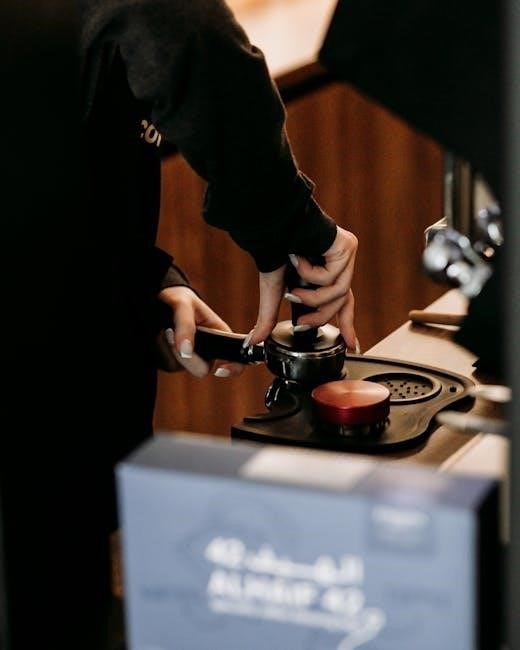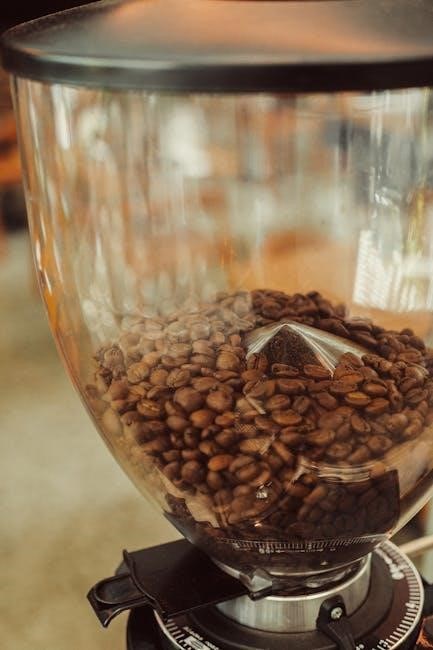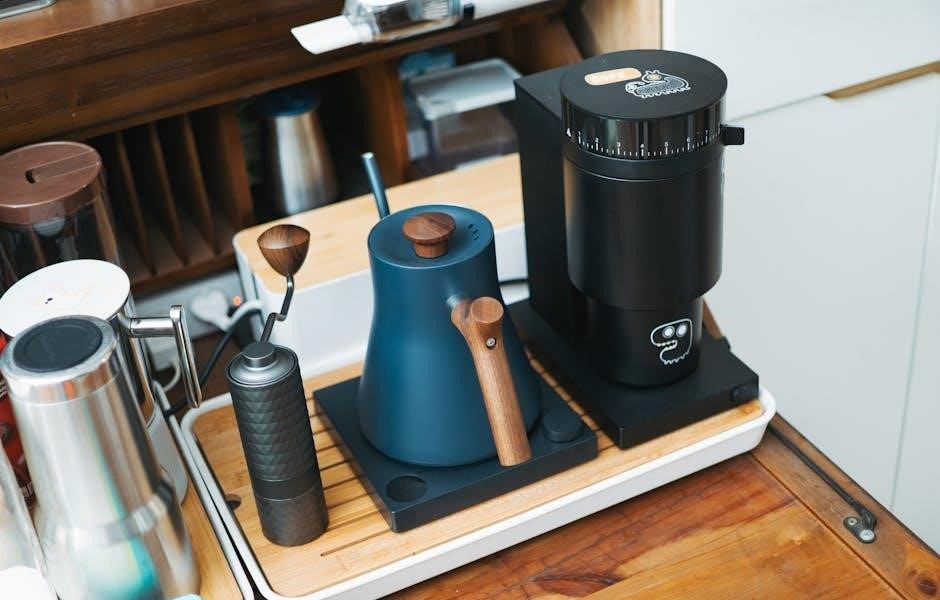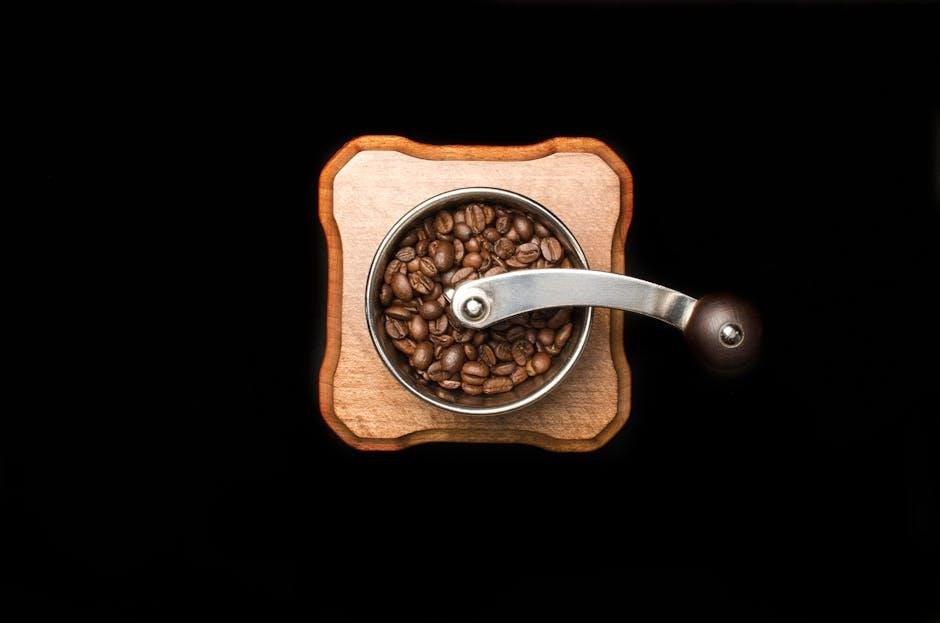
Manual vs Electric Coffee Grinder: Choosing the Right One for Your Needs
When deciding between a manual or electric coffee grinder, consider your brewing method, lifestyle, and preferences. Manual grinders offer affordability, portability, and a tactile experience, ideal for small batches and travel. Electric grinders provide speed, consistency, and convenience, perfect for busy routines and larger quantities. Choose based on your specific needs.
Coffee grinders are an essential tool for coffee enthusiasts, transforming whole beans into the perfect grind for various brewing methods. The grind size and consistency directly impact the flavor and extraction of coffee, making a high-quality grinder a cornerstone of any coffee setup. With two primary options—manual and electric coffee grinders—choosing the right one depends on personal preferences, lifestyle, and brewing needs.
Manual grinders, often preferred by those who value affordability, portability, and a hands-on experience, require physical effort to grind the beans. They are ideal for small batches and travel, offering a tactile connection to the coffee-making process. On the other hand, electric grinders prioritize speed and convenience, suitable for busy individuals or households needing larger quantities of coffee quickly.
Both types of grinders have their strengths and weaknesses, and the choice between them is deeply personal. Whether you prioritize convenience, budget, or the ritual of manual grinding, understanding the differences and aligning them with your coffee habits will ensure the perfect cup every time. This guide explores these options in detail, helping you make an informed decision tailored to your unique needs and preferences.
Pros and Cons of Manual Coffee Grinders
Manual coffee grinders are a popular choice among coffee enthusiasts due to their affordability, portability, and hands-on brewing experience. One of the primary advantages is their cost-effectiveness, as they are generally cheaper than electric grinders. They are also compact and lightweight, making them ideal for travel or small kitchens. Additionally, manual grinders operate without electricity, offering a sustainable and energy-efficient option for coffee preparation.
The grinding process with a manual grinder allows for a high degree of control over the coarseness of the grind, which is essential for various brewing methods. Many users appreciate the tactile experience of manually grinding their beans, as it adds a ritualistic element to their coffee-making routine. Furthermore, manual grinders are much quieter than their electric counterparts, making them a great choice for early-morning brewing without disturbing others.

However, manual grinders do have some drawbacks. They require physical effort and time, especially for larger quantities of coffee or finer grinds. This can be tedious for those who value speed and convenience. Additionally, manual grinders often have smaller capacities, which may not be suitable for households with multiple coffee drinkers. Despite these limitations, manual grinders remain a excellent option for those who prioritize affordability, portability, and a more intimate connection to their coffee.
Pros and Cons of Electric Coffee Grinders
Electric coffee grinders are known for their speed, convenience, and ability to handle large quantities of coffee beans. One of their biggest advantages is their efficiency, as they can grind beans in seconds, making them ideal for busy households or offices. They also offer consistent grind sizes, which is crucial for achieving the perfect extraction in various brewing methods. Additionally, electric grinders often come with advanced features such as adjustable settings, timers, and automatic shut-off, enhancing the user experience.
Another significant benefit is their capacity. Electric grinders typically have larger bean hoppers and ground coffee containers, allowing users to prepare enough coffee for multiple people at once. This makes them a practical choice for families or those who entertain guests frequently. Furthermore, they require minimal physical effort, which can be a blessing for people with limited hand strength or those who prefer a hands-off approach to coffee preparation.
However, electric grinders also have some drawbacks. They are generally more expensive than manual grinders, especially high-quality models with burr grinding mechanisms. They also generate noise during operation, which may be a concern for early-morning coffee lovers or those living in shared spaces. Moreover, electric grinders rely on electricity, making them less portable and unsuitable for camping or travel. Maintenance can be more involved, as some parts may need to be cleaned or replaced regularly. Despite these cons, electric grinders remain a top choice for those seeking convenience, speed, and precision in their coffee preparation.
Key Differences in Brewing Methods
The choice between a manual and electric coffee grinder significantly impacts the brewing method you use. Manual grinders are often preferred for coarser grinds, making them ideal for French press, pour-over, and Aeropress brewing. These methods benefit from the consistent, hand-crafted grind that manual grinders provide, especially when precision is key for flavor extraction.
Electric grinders, on the other hand, excel with finer grinds required for espresso or Turkish coffee. Their ability to produce uniform particles quickly makes them a better fit for these high-precision brewing techniques. Additionally, electric grinders are more efficient when handling larger quantities, which is advantageous for drip brewing or serving multiple cups at once.

The grind size and consistency also vary based on the grinder type. Manual grinders may struggle with achieving the fine, even grind needed for espresso, while electric grinders can easily adapt to these demands. Conversely, manual grinders are often quieter and produce less heat, which can preserve the coffee’s flavor for methods like cold brew or syphon coffee.
Ultimately, the brewing method dictates the grinder’s suitability. For those who prioritize versatility and speed, electric grinders are the better choice. For those who value portability and a more tactile, flavorful experience, manual grinders are preferred. Understanding your brewing preferences is crucial for selecting the right grinder to enhance your coffee rituals.
Cost Comparison

When comparing manual and electric coffee grinders, cost plays a significant role in decision-making. Manual grinders are generally more affordable, with high-quality options available for between $20 and $150. They are a budget-friendly choice for coffee enthusiasts who want freshly ground beans without a hefty investment. This makes them ideal for those new to coffee grinding or on a tight budget.
Electric grinders, while more expensive, offer advanced features like precision grinding, programmable settings, and faster operation. Entry-level electric grinders can start around $50, but high-end models with burr grinders and multiple settings can range from $100 to $300 or more. The added convenience and durability of electric grinders often justify the higher cost for frequent users or those who value speed and consistency.

Long-term maintenance and durability should also be considered. Manual grinders typically require less maintenance and have fewer parts that can break, making them a cost-effective choice over time. Electric grinders, while durable, may incur repair costs if motors or burrs wear out. Ultimately, the choice depends on balancing initial cost, features, and long-term value based on your grinding habits and preferences.
Lifestyle Considerations
Your lifestyle plays a crucial role in determining whether a manual or electric coffee grinder is the better fit for you. If you value simplicity, portability, and a quieter experience, manual grinders are an excellent choice. They are ideal for travelers, as they are lightweight and require no electricity, ensuring great coffee on the go; Additionally, manual grinders are perfect for small households or individuals who brew coffee in smaller quantities, as they offer precise control over the grind.
On the other hand, electric grinders are designed for convenience and efficiency, making them a great option for busy individuals or families with multiple coffee drinkers. They are faster and require less effort, especially for finer grinds needed for espresso. However, they are generally louder and less portable than manual grinders, which may be a consideration for those who value a peaceful morning routine or live in shared spaces.

Ultimately, your daily routine and preferences will guide your decision. If you enjoy the tactile experience of grinding beans and don’t mind the extra effort, a manual grinder might be more rewarding. But if speed and convenience are priorities, an electric grinder will likely better suit your lifestyle. Balancing these factors ensures you find the grinder that seamlessly integrates into your daily life.
Maintenance and Durability
Maintenance and durability are key factors to consider when choosing between manual and electric coffee grinders. Manual grinders are generally easier to maintain due to their simple design, with fewer moving parts and no complex mechanisms. They are also quieter and produce less heat, which can preserve the coffee’s flavor. Cleaning a manual grinder typically involves disassembling it, which is straightforward and requires minimal effort. However, manual grinders may lack replaceable parts, so durability can vary depending on the quality of construction.
Electric grinders, while more convenient, often require more maintenance. They can accumulate coffee residue and oils, which need regular cleaning to prevent clogging and bacterial growth. Additionally, electric grinders generate heat during operation, which can potentially affect the flavor of the coffee. On the plus side, many electric grinders come with replaceable burrs, extending their lifespan. However, their complex motorized components can be more prone to wear and tear over time.
In terms of durability, manual grinders generally have a longer lifespan due to their simplicity, while electric grinders may require more frequent repairs or replacements. Ultimately, the choice depends on your willingness to trade off convenience for lower maintenance or vice versa.

Expert Recommendations

Coffee experts and baristas often recommend choosing a grinder based on specific needs and preferences. For those who value flavor and precision, manual grinders are praised for their ability to produce consistent grinds without generating heat, which can degrade coffee beans. Many experts highlight that manual grinders are ideal for small batches and specialty brewing methods like pour-over or French press. Additionally, they are portable and require no electricity, making them a favorite among travelers and coffee enthusiasts who appreciate the tactile experience of grinding by hand.

On the other hand, electric grinders are often endorsed for their convenience and efficiency, especially for those who brew large quantities or prefer espresso. Experts note that high-quality electric grinders with burrs offer superior consistency and speed, making them a practical choice for busy households. However, they caution against blade grinders, which can produce uneven results and introduce heat, negatively impacting flavor.
Ultimately, experts agree that the best grinder is one that aligns with your lifestyle, budget, and brewing method. For casual coffee drinkers, a manual grinder may suffice, while serious coffee aficionados may benefit from investing in a premium electric grinder. Both options can deliver excellent results when chosen wisely.
Final Verdict

Choosing between a manual and electric coffee grinder ultimately depends on your lifestyle, brewing habits, and personal preferences. Manual grinders are ideal for coffee enthusiasts who value portability, affordability, and a tactile grinding experience. They are perfect for small batches, travel, and methods like pour-over or French press, where consistency and flavor are paramount. Additionally, manual grinders are quieter and require no electricity, making them a great choice for those who prioritize simplicity and convenience.
Electric grinders, however, cater to those who prioritize speed and efficiency. They are better suited for busy households, large quantities of coffee, or methods like espresso that require a fine grind. High-quality electric grinders often come with advanced features like precise settings and large capacities, making them a worthwhile investment for serious coffee lovers; That said, they can be more expensive and require regular maintenance to ensure optimal performance.
Ultimately, both manual and electric grinders can deliver exceptional results when matched to the right user. Whether you’re a casual coffee drinker or a dedicated aficionado, the key is to choose a grinder that aligns with your needs and enhances your coffee-making experience. By considering factors like convenience, budget, and brewing method, you can make an informed decision that elevates your daily cup of coffee.